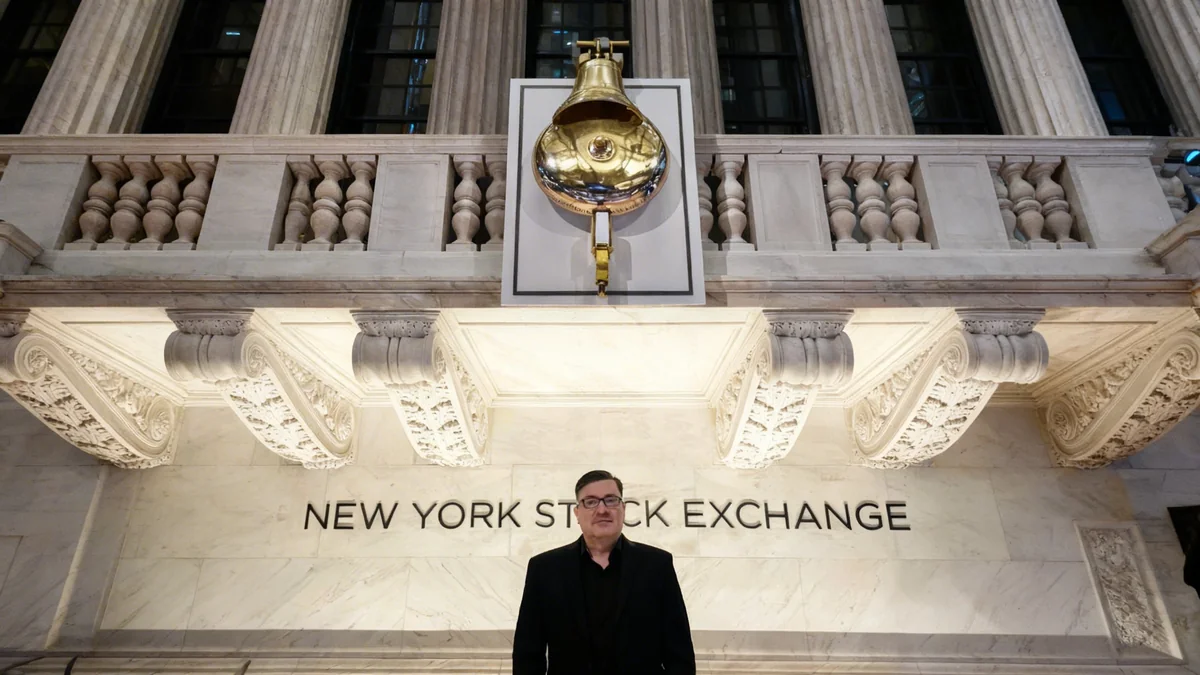Actors Kevin Bacon and Kyra Sedgwick were among the thousands of investors who lost substantial sums in Bernie Madoff's historic Ponzi scheme. After the fraud was exposed in 2008, the couple faced the challenge of rebuilding their finances. Their recovery was significantly aided by a portfolio of real estate assets acquired over several decades, which had appreciated in value and provided a stable foundation.
Key Takeaways
- Kevin Bacon and Kyra Sedgwick lost a significant portion of their savings in the 2008 Bernie Madoff Ponzi scheme, with reports estimating their losses around $30 million.
- Their financial recovery was anchored by long-term investments in real estate, separate from their stock market portfolio.
- Key properties include a 40-acre farm in Connecticut purchased in 1983, as well as homes in New York City and Los Angeles.
- The substantial appreciation of these properties over decades provided the couple with the financial stability needed to rebuild their wealth.
- Their experience highlights the importance of asset diversification and vetting financial advisors.
The Collapse of a Financial Empire
In 2008, the financial world was shaken by the arrest of Bernie Madoff, a prominent Wall Street figure. His investment firm was revealed to be a massive Ponzi scheme, one of the largest in history, defrauding investors of an estimated $65 billion.
For decades, Madoff had cultivated an image of unparalleled success, delivering consistently high returns that attracted a client list of wealthy individuals, celebrities, and charitable foundations. Bacon and Sedgwick, married since 1988, had entrusted a large part of their portfolio to him.
While the exact amount has not been publicly disclosed by the couple, reports at the time suggested their losses were in the range of $30 million. In an interview with People magazine, Bacon described the experience bluntly.
"It sucked," Bacon stated, acknowledging that they had invested most of their money with Madoff. He later reflected on the hard-learned lesson: "If it seems too good to be true, then it's too good to be true."
The couple confirmed to the "Smartless" podcast that they eventually recovered a portion of their money through the Madoff Victim Fund, but it was far from the total amount lost. The event forced them to reassess their financial strategy and rely on other assets.
Understanding the Madoff Ponzi Scheme
A Ponzi scheme is a form of investment fraud that pays profits to earlier investors with funds from more recent investors. The scheme leads victims to believe that profits are coming from legitimate business activity, and they remain unaware that other investors are the source of funds. These schemes require a constant flow of new money to survive and inevitably collapse when they cannot attract enough new investors or when a large number of investors try to cash out simultaneously.
A Foundation Built on Real Estate
Fortunately for Bacon and Sedgwick, their investments with Madoff were concentrated in the stock market. Their real estate holdings were entirely separate, providing a crucial financial buffer that was unaffected by the fraud.
This portfolio of properties, built over many years, became the cornerstone of their financial recovery. The value of tangible assets like land and homes proved to be a reliable store of wealth, appreciating steadily while their liquid investments vanished.
The Connecticut Farm A Long-Term Anchor
A key asset is a 40-acre farm in Sharon, Connecticut, which Bacon purchased in 1983, before his marriage to Sedgwick. This long-term holding demonstrates the power of real estate appreciation over time.
Property Value Appreciation
According to data from the U.S. Department of Housing and Urban Development (HUD), the median home price in the Northeastern United States in 1983 was approximately $82,200. Today, Zillow reports that the average home value in the town of Sharon, Connecticut, is around $669,980. Given that Bacon's property includes 40 acres of land, its current value is likely in the millions of dollars.
This single investment, held for over four decades, has grown into a multi-million dollar asset. Its significant increase in value provided a substantial part of the equity the couple could rely on after the Madoff losses.
Urban Properties in High-Growth Markets
In addition to the farm, the couple also owns homes in two of the nation's most expensive and resilient real estate markets: New York City and Los Angeles. Both cities have experienced dramatic property value increases since Madoff's arrest in 2008.
Owning property in these high-demand urban centers further diversified their real estate portfolio. The consistent growth in these markets contributed significantly to rebuilding the net worth that was lost in the Ponzi scheme. The combination of rural land and prime urban real estate created a balanced and robust asset base.
Lessons in Financial Prudence and Resilience
The story of Bacon and Sedgwick's financial journey offers several important lessons for investors. The most prominent is the value of diversification across different asset classes. By holding both securities and real estate, they ensured that a catastrophic loss in one area did not wipe out their entire net worth.
Their experience also serves as a cautionary tale about the importance of thoroughly vetting financial advisors. Bacon's comment about things seeming "too good to be true" is a classic warning sign in investing. Madoff's unusually steady returns should have been a red flag, but his reputation and charisma persuaded many sophisticated investors.
How to Vet a Financial Advisor
Most financial brokers and dealers in the United States are licensed. Investors can use the Financial Industry Regulatory Authority (FINRA) website to look up an advisor's history, including any disciplinary actions or customer complaints. Verifying credentials and checking for a clean record is a critical first step before entrusting someone with your savings.
Despite the immense financial and emotional toll, the couple has moved forward. When asked if the experience left him jaded, Bacon told People magazine, "Not jaded, more careful, but not jaded."
Today, Bacon and Sedgwick continue their successful acting careers while dividing their time between their homes. Their story is not just one of loss, but of recovery, demonstrating how prudent, long-term investments in tangible assets like real estate can provide security and a path to rebuilding even after a devastating financial blow.





